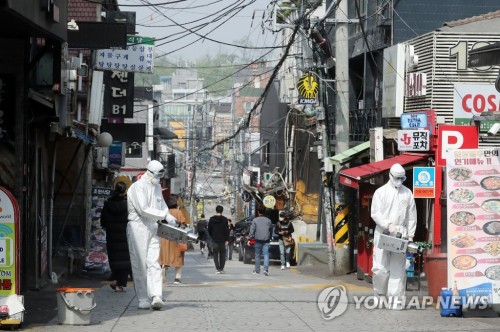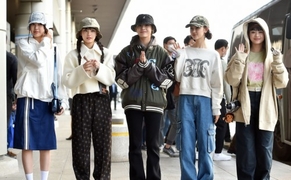 |
By AsiaToday reporters Yoon Seo-young & Jang Ji-young
The number of new coronavirus infections in connection with Itaewon clubs surged to 86 on Monday, raising concerns about a second wave of infections. Since it was young people who were mainly exposed to the virus this time, nearly 30 percent of total cases are asymptomatic. The problem is that they pose a risk of secondary infection to acquaintances and families without even knowing they are infected, and there are high-risk groups among the victims of secondary infection. Health authorities urged those who visited Itaewon clubs to get tested for the coronavirus.
The Korean Centers for Disease Control and Prevention (KCDC) said Monday that 86 people had tested positive in connection with the Itaewon outbreak, up 14 compared to 12 hours earlier. The cases in Seoul were the highest in a month. The cases have spread as far south as Busan and Jeju Island, raising people’s concern over a potential second wave of infections.
By region, Seoul accounted for a large share at 51, followed by the surrounding Gyeonggi Province with 21. The number of related cases from Incheon came to seven. Of the 86 patients, 63 were directly exposed to the virus as they visited the Itaewon clubs, while the other 23 contracted the virus from family, colleagues or acquaintances. No tertiary transmissions have been reported. However, health officials are facing difficulties in tracing other club visitors due to inaccurate entry logs. The authorities will analyze the credit card history of those whose mobile phones were connected to base stations in Itaewon.
“We ask those who visited clubs in Seoul’s Itaewon between April 24 and May 6 to refrain from going out and to consult with either local public health center or emergency call center by dialing 1339,” KCDC Director Jung Eun-kyeong said during a briefing. “We ask you to visit near screening clinics to undergo a diagnostic test regardless of whether or not you are showing symptoms.”
The health officials said this week is crucial in blocking the spread of secondary and tertiary transmissions into local communities. According to the KCDC, 34.8 percent of the patients related to the Itaewon clubs showed no symptoms associated with the coronavirus. It means those infected can spread the virus to their families and acquaintances without even knowing it. Among the 86 patients, 58 were in their 20s. “Since most of the patients are young, there are no serious cases yet. But the majority of the cases are in the early stages, so we have to watch the progress of clinical symptoms. Since most of their symptoms are weak, they may not have a chance to go to the hospital and get tested. It is quite likely that their diagnosis will be delayed,” Jung said.
Unfortunately, the situation concerned by the authorities is becoming a reality. A woman in her 80s has been confirmed after her grandson contracted the virus after visiting a club in Itaewon. Those with weakened immune systems or underlying health conditions are highly vulnerable to the virus. The biggest concern of the health authorities is that secondary infections among highly vulnerable groups can lead to serious damage.
Jung promised efforts to reduce inconvenience and prejudice against those who get tested and vowed to thoroughly protect their personal information.
#COVID-19 #Itaewon #club #second wave
Copyright by Asiatoday
Most Read
-
1
-
2
-
3
-
4
-
5
-
6
-
7





















